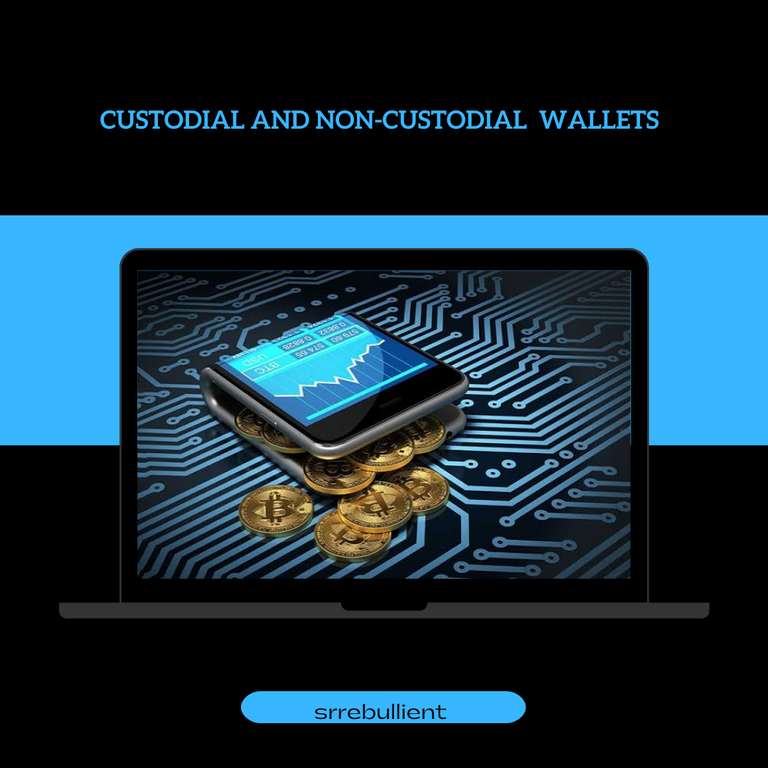
It's been more than 10 years so me the emergence of cryptocurrencies by an anonymous person(s) who goes by the name Satoshi Nakamoto. With this currency being a store of value will certainly need a means of storage just as how our conventional currencies are stored in banks and wallets.
The need to have a means of secure storage for cryptocurrencies is what that has led to the emergence of crypto wallets.

A cryptocurrency wallet is simply a digital wallet that allows the safe keeping of cryptocurrencies. With crypto being a decentralized digital currency built of blockchain, the cryptocurrency wallet allows users to freely interact with various blockchain DApps.
A crypto wallet is usually simple and it is mostly made up of just two components which are the public and the private key.
- Public key
The public key is simply an address unique to a particular cryptocurrency wallet and is required for transaction purposes. This address can be shared with others who intend to send data/cryptocurrencies into the wallet.
Data sent to particular cryptocurrency wallet using the public key, is encrypted and can only be decrypted (read) using the private keys of the same wallet.
A good example of a public key is our various unique username on steemit. They are made unique because it is required for transaction purposes and if more than one person should own the same username (public key) transactions will always go to who it is not intended for.
- Private key
A private key on the other hand is required to be kept confidential and secured for it what it what grants access to a cryptocurrency wallet. It also performs the unique function of decrypting data sent into the wallet via the public key.
Like I already said, this key should be kept hidden and never to be revealed to anyone unless in cases of absolute trust such that exists between spouses.
Nevertheless, users might sometimes entrust their private keys to a third-party and this is what that has led us into the two types of wallets known are custodial and non-custodial wallets.

This type of wallets entrust the private key to a third-party usually centralized cryptocurrency exchanges. These third-parties in trust, are allowed to initiate transactions and perform other confidential duties using the private key.
Users of custodial wallets doesn't have full right over their assets and are denied the ability to sign transactions due to the lack of private key ownership. This explains why certain cryptocurrencies withdrawals or deposit will be suspended on those custodial wallets and there's nothing a user can do about it.
- Example
Binance, Houbi, Poleniex, Kraken, etc.

Contrary to custodial wallets, non-custodial wallets allows full ownership to a user by giving them the absolute control over their private keys. Users of custodial wallets decides when to sign transactions with no fear of it being turned down.
This type of wallets also allows users to freely interact with various decentralized platforms such as uniswap, pancakeswap, sunswap, etc.
- Example
MetaMask, Trust wallet, Tronlink, token pocket, etc.

| Custodial wallets | Non-custodial wallets |
|---|---|
| No user privacy | Absolute user privacy |
| Private key is managed by a third-party | Private key is managed only by the wallet owner |
| High transaction fees due to third-party involvement | Low transaction fee |
| Lower security level | Higher security level |
| Account creation is based on certain criteria (KYC) | There's no barrier nor criteria required for wallet creation. |
The type of wallet to use is basically dependent on what a user intends to do with his cryptocurrency assets. For long term storage, I will recommend a non-custodial wallet. Also, those that are into various DEfi activities such as staking, yeild farming, etc. Usually make use of non-custodial wallets due to it's ability to connect to various DEfi platforms.
On the other hand, custodial wallets offer various services such as spot and leverage trading and these are two known reasons its adoption is rapidly increasing.

Cryptocurrency wallets offer varieties of uses ranging from assets storage to accessing DApps. A great number of cryptocurrency users operate on both custodial and non-custodial wallets due to their varying needs and activities. As a newbie, it is best to learn more about wallets before choosing which to use because a lost asset cannot be recovered.